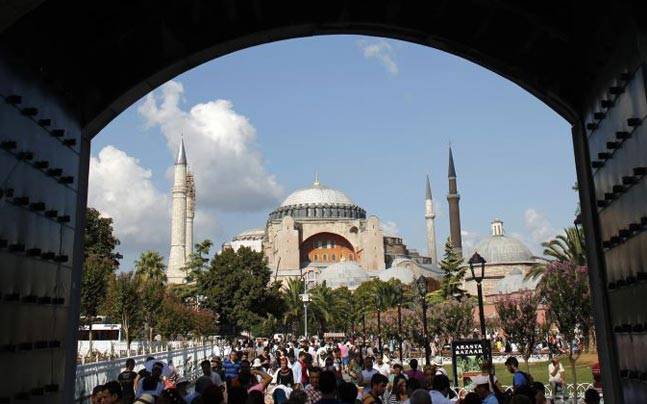Turkey Retaliates After Terrorist Attack
By Felipe Bueno
Staff Writer
On January 12, ISIS launched an attack on the historic Sultanahmet district of Istanbul, continuing its campaign of terror and fear. A normal day in Istanbul, the crossroads of an ancient world, turned into a nightmare as a Saudi-born Syrian suicide bomber killed ten tourists.
The bombing quickly transformed into an international incident, as eight of the tourists killed were German citizens and the remaining two victims were Peruvian.
“Once again, international terrorism is showing its cruel and inhuman face today,” said German Chancellor Angela Merkel in response to the attacks. Other than condolences sent by the chancellor on Twitter, no statement has been given regarding what the German government will do in response to the bombing.
According to the New York Times, Turkey is now launching a “major offensive against Islamic State targets” in retaliation. Turkish ground forces are conducting raids against terrorist cells and working to build a wall on the Turkish-Syrian border.
“Every attack that targets Turkey’s guests will be punished,” vowed Turkish Prime Minister Ahmet Davutoglu.
As Business Insider reports, the attacker, Nabil Fadli, was a Syrian citizen born in Saudi Arabia, who moved back to Syria with his family after his father finished a career in teaching. A dental technician named Mohammad Bakir Hussein, who claims to have worked at the same institute as Fadli, said Fadli had been a body-building coach. Hussein described Fadli as an “upstanding and very respectable person,” and said he could not imagine what had led Fadli to join the Islamic State group.
Turkish officials have said that there was no question Fadli had fought in the ranks of the Islamic State, and believe that Fadli had been captured and tortured by the Kurdish YPG militia or its political wing, the PYD.
According to Reuters, a Syrian activist who splits his time between Saudi Arabia and Turkey claims that Fadli had begun fighting in the Islamist group Ahrar al-Sham against Syrian government forces. Afterwards, like many others, he left to join the Islamic state.
While not as deadly as the October attack on the capital of Ankara, which killed nearly 100 people, the New York Times argues that the Istanbul bombing may be more resonant due to its location, as tourism revenues comprise close to $30 billion of the Turkish economy.
Another important aspect of the attack is the choice of targets. Because the victims where German, analysts theorize that this was done in order to increase tension and anti-Islamic views within Germany to prevent the country from taking in more Syrian refugees. Additionally, as the bombing killed Germans on Turkish soil, the attack hurt countries that are both in the U.S.-led coalition against ISIS.


